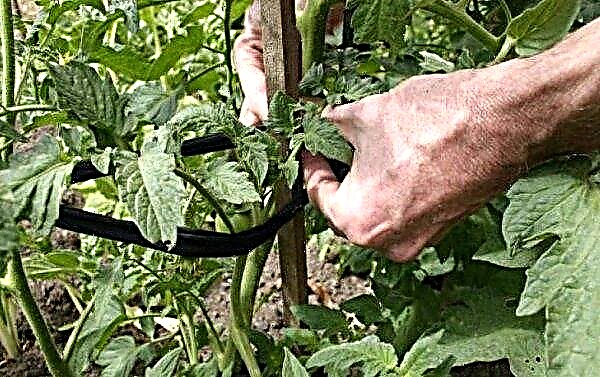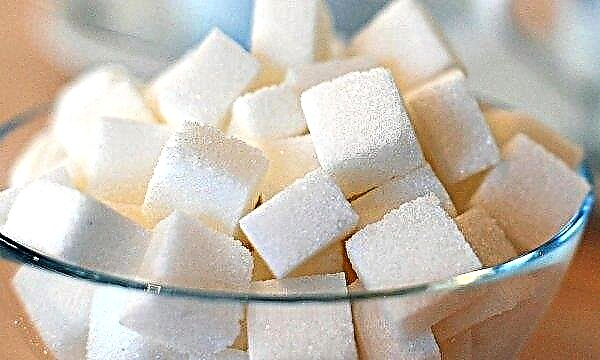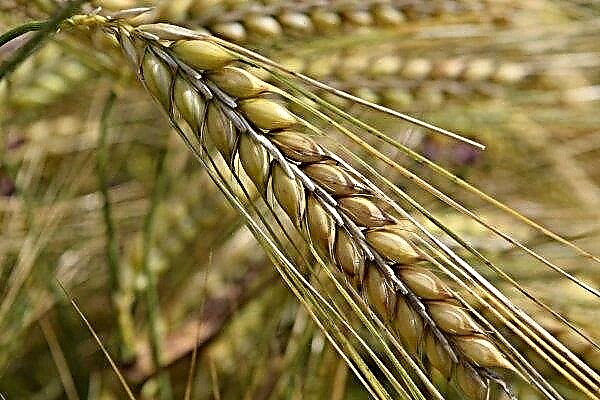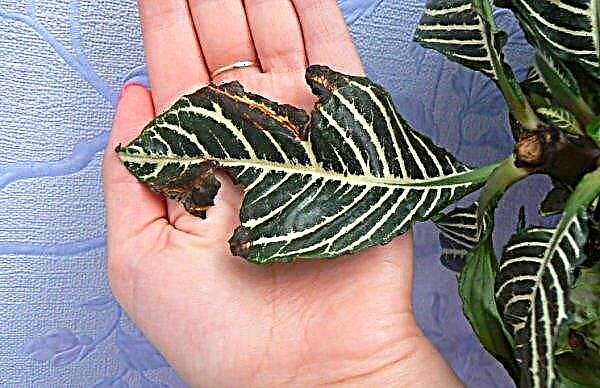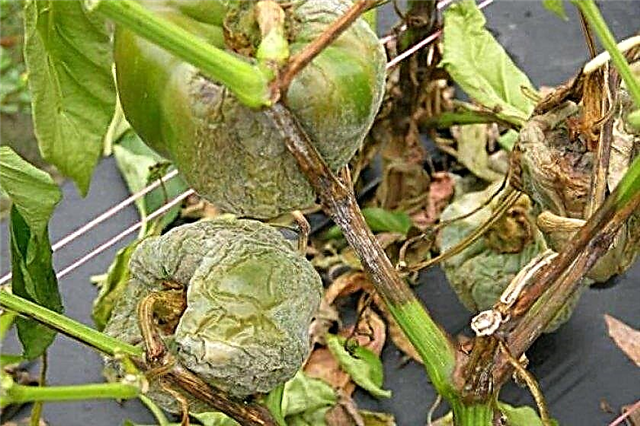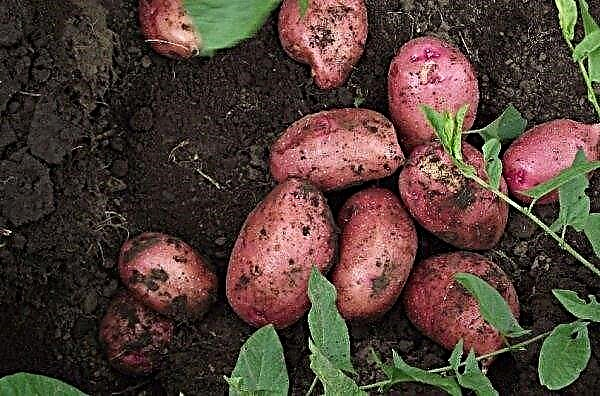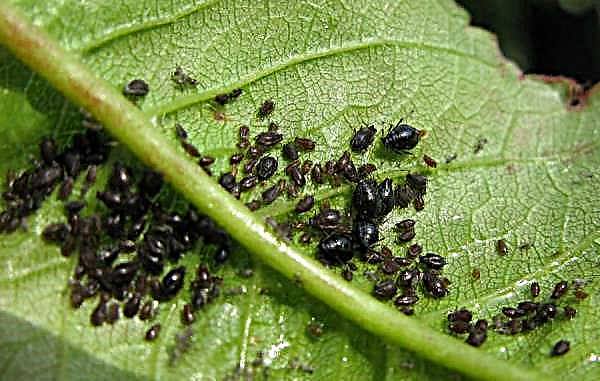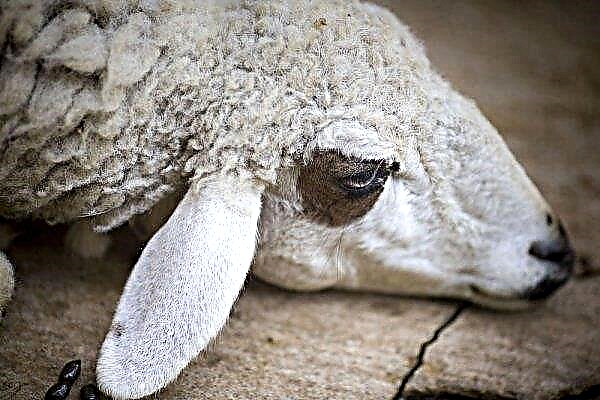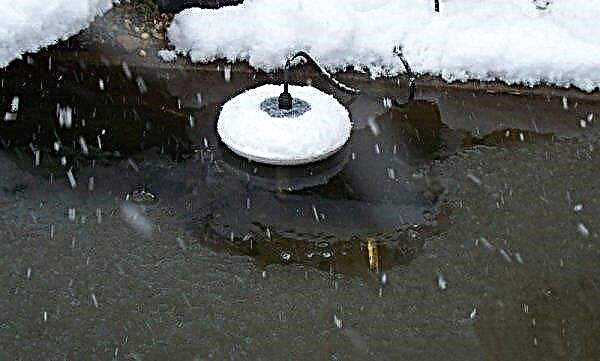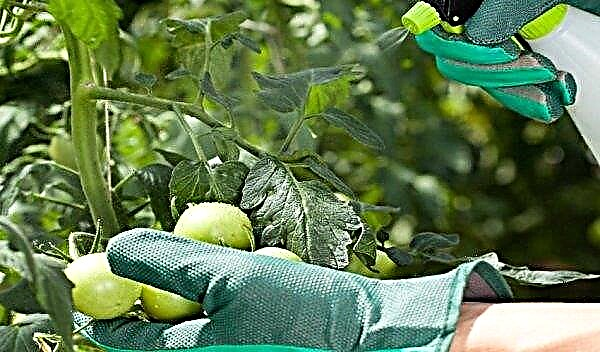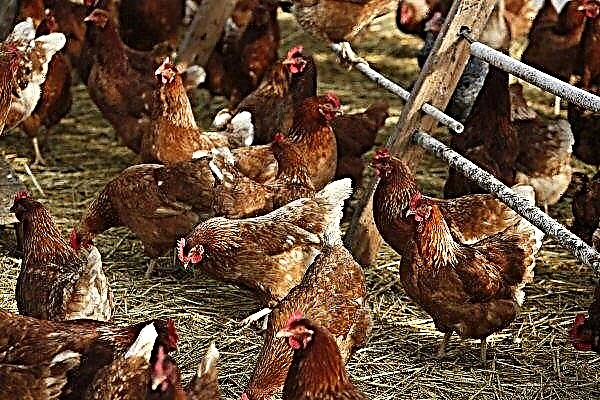The correct diet of the rabbit is what will provide it with strong immunity and a long life. The owners of these animals often wonder about whether it is possible to feed them with a particular product. One of these “dubious” foods is cucumber. Let's see if it is possible to include this vitamin-rich vegetable in the eared diet.
Can rabbits be given cucumbers
You can feed your pets with fresh cucumbers, but not often: first of all, you should observe whether they eat them with appetite. This vegetable is rich in vitamins and minerals, which are especially necessary for a decorative rabbit. Nevertheless, only fresh vegetables (preferably homemade) are suitable for the pet, it is strictly forbidden to feed with salted ones.
Did you know? Rabbits can easily jump up to a meter high.
The tops of cucumbers, along with the flowers of the fetus, can also go into business, but before feeding it must be dried from moisture and examined for diseases and pests.
The benefits of consumption
- Cucumbers are useful because:
- contain vitamin C (10 mg per 100 g);
- contain calcium (20 mg per 100 g);
- contain phosphorus (24 mg per 100 g);
- rich in minerals (potassium, iron, manganese, sodium, iodine, chromium);
- contain vitamins B1, B2, B9;
- rich in carbohydrates, proteins, fiber.

Harm and contraindications
- A green vegetable can also be harmful in such cases:
- if purchased in a supermarket where products are processed with chemistry;
- if it is not well washed before serving;
- the animal has an individual intolerance to the product;
- if you give it in large quantities or completely base the pet’s diet on it.
Contraindications:
- can not be eaten under the age of 3 months;
- you can not limit the diet to cucumbers only;
- during the first bait it is forbidden to add new products to the diet.
Did you know? The most expensive breed of rabbits is the Dutch fold, bred in the United States. One such eared one costs about $ 1,000.
Features of feeding rabbits with cucumbers
Before giving a pet a cucumber, it must be thoroughly washed under running water. After you need to dry it.
Adults
Vegetable should be cut into small pieces. The first time you can’t give it a lot, the animal needs to get used to; after you can increase the dose. It is better to give cucumbers for lunch. You can grate them or finely chop and mix with food, which will provide your pet a full meal.
Young animals
Do not try to feed a pet that is under 3 months old with this product. It is strictly forbidden to feed them newborns up to 1 month - this can lead to complete digestive tract dysfunction.
Important! If the rabbit has soft stools after feeding, immediately remove the cucumber from the diet.
Feeding a rabbit with other vegetables
In order for your pet to be completely healthy and well-fed, you need to feed him various vegetables, such as carrots or zucchini. It is advisable to use homemade products without chemicals, nitrates and pesticides.
Which may be useful
Fresh vegetables contain many beneficial elements for animals. Vegetables useful for a rabbit are:
- broccoli (leaves, flowers and the stem itself);
- Brussels sprouts (stem, leaves and heads);
- zucchini (give fresh, slightly unripe fruits in pieces);
- zucchini (with skin, fruit and flowers);
- green peas (with pod, leaves and flowers);
- Beijing cabbage (leaves);
- dill (leaves, stems, flowers and seeds);
- carrots (root vegetables, tops, flowers and seeds);
- bell pepper (without petiole);
- parsnip (root and leaves);
- turnip (root crop and tops);
- celery (tops and fruits).

What can not be fed
There are vegetables that are very beneficial to humans, but harmful or even deadly to rabbits. Danger to the rodent may be:
- Tomatoes
- red cabbage;
- eggplant;
- onion;
- beet;
- potatoes.
Important! Feeding prohibited foods, even in small quantities, can be fatal.
Rabbit Feeding Guidelines
Rabbits are very vulnerable to diseases and have a pronounced negative reaction to malnutrition in the form of an upset gastrointestinal tract and a decrease in immunity. In caring for them, you must follow some recommendations:
In caring for them, you must follow some recommendations:
- everything is good in moderation - you can not overfeed or underfeed animals;
- it is important to ensure that a sufficient amount of all trace elements and vitamins necessary for the animal is present in the diet (you can use top dressing);
- when introducing a new food product into the diet, you need to observe the reaction of the pet's body (whether there are any changes in behavior, whether the stool is hard, etc.).
Rabbits are happy when healthy, and healthy when properly fed. Treat the diet of your pet as painstakingly as your own, and then with the health of the animal everything will be fine!

